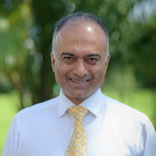YANGON, January 23, 2013 --- Preparations to ready the Myanmar National Community Driven Development Project for implementation are well underway. The Myanmar government and the World Bank are continuing consultations with civil society groups, non-governmental organizations and development partners to develop specific design features of this $80 million, grant-funded project which aims to empower rural communities to choose investments they need most, such as roads, bridges, irrigation systems, schools, health clinics or rural markets.
“The Department of Rural Development has adopted a consultation plan for the project, which the World Bank is supporting,” said Kanthan Shankar, the Bank’s Country Manager in Myanmar. “Regular consultations aim to build understanding of the project by beneficiary communities and other stakeholders, learn experiences from practitioners involved in similar community based projects, and improve project design and implementation and increase project ownership and sustainability.”
“The consultations will aim to foster a bottom-up, people-centered approach,” said Mr. Shankar. “We welcome inputs and ideas from civil society, NGOs and our development partners, especially in establishing and relying upon participatory processes that allow villagers to choose and design projects that best meet the needs of their communities.”
Civil Society Organizations Raise Issues at Public Meetings
Following presentations by the Bank’s project team leader Markus Kostner on the overall design of and implementation plan for the project, local and international organizations shared experiences, made suggestions and raised questions during public town hall-style meetings on the 3rd and 4th of December 2012 in Yangon.
Among the most critical issues: the need for transparency and accountability in implementing the project, the challenge of creating an inclusive participatory structure at the village level, the importance of taking into account existing community-based activities, and the need to invest in capacities before funds flow.
“These consultations are helping us to improve the project’s operational features,” said Mr. Kostner, in responding to contributions from representatives of Myanmar civil society organizations includingneration Wave, Paung Ku, the Community Response Group and the Dawei Development Association and from international NGOs including Oxfam, Save the Children, Mercy Corps and Relief International.
“In preparing the project,” Mr. Kostner acknowledged, “we will pay particular attention to issues such as existing community committees and development plans, a realistic gender balance for local committees, a consultative process to identify participating townships and experience with existing local models of community facilitation.”
The consultation meetings were open and Myanmar journalists attended the meetings.

